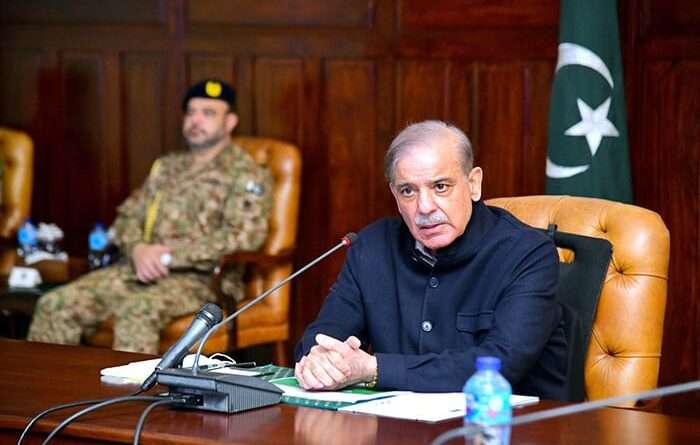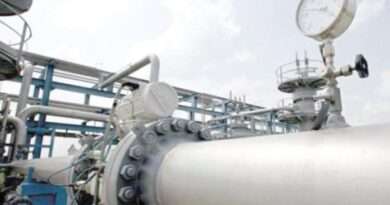PM Calls for Strict Measures Against Petrol Smuggling
|
Getting your Trinity Audio player ready...
|
Prime Minister Shehbaz Sharif has urged the implementation of stringent measures to curb petrol smuggling in Pakistan, as part of a broader strategy to address the nation’s economic challenges and bolster energy markets. During a review meeting to evaluate Pakistan’s economic situation and the digitization of the Federal Board of Revenue (FBR), the Prime Minister emphasized the need for a crackdown on smuggled fuel, which has significantly impacted the domestic petroleum industry. The meeting also focused on the progress of FBR’s digital transformation, marking a significant step towards improving tax administration and overall economic efficiency.
Key Developments in Petroleum Sales
In a positive development, petroleum sales in Pakistan reached the highest levels seen in the past 25 months. In November 2024, sales hit 1.58 million tonnes, a significant increase driven by efforts to curb the flow of smuggled fuel and a reduction in both petrol and diesel prices. This surge represents a 15% year-on-year increase in petroleum product sales, signaling a potential recovery in the energy market. The Prime Minister expressed confidence that these developments reflect a positive trajectory for the country’s economy, particularly in the energy sector.
The Prime Minister’s statement emphasized the role of effective policies and timely decisions in fostering economic recovery. He stressed that these measures would not only stabilize the petroleum market but also contribute to broader economic growth by increasing domestic petroleum sales.
Focus on Smuggling and Policy Measures
Despite the positive uptick in petroleum sales, petrol smuggling remains a significant issue for the country. Smuggled fuel continues to flood the market, depriving the government of potential tax revenue and distorting fuel prices. In response, Prime Minister Sharif directed the implementation of stricter measures to eliminate the smuggling networks operating within the country. He called for increased vigilance at borders and ports to prevent the illegal flow of petroleum products into the domestic market.
The Prime Minister emphasized that the government will deploy additional resources to enhance monitoring systems and improve the enforcement of anti-smuggling laws. Efforts will also include enhanced coordination between various law enforcement agencies and regulatory bodies to combat smuggling operations effectively. The authorities are also looking into using advanced technologies such as video analytics to assist in tracking and identifying illegal activities within the cement industry, which has often been a source of concern.
Digital Transformation of the Federal Board of Revenue (FBR)
A key milestone in the government’s economic reform strategy has been the digitization of the Federal Board of Revenue (FBR). The FBR has been undergoing a comprehensive transformation aimed at improving the tax collection system, increasing transparency, and reducing corruption. Prime Minister Sharif highlighted the importance of this initiative during the meeting, noting that the digitalization of tax records and collection processes has already begun to show positive results.
The implementation of an advanced digital system will significantly enhance the government’s ability to track and manage taxes, improving efficiency and ensuring a more accurate collection process. As part of the reform efforts, the government plans to integrate more technological solutions into various public sectors, allowing for better monitoring, transparency, and governance.
Musadik Malik Denies New Oil Deal with Russia
In a separate statement, Federal Minister for Petroleum Musadik Malik clarified that Pakistan has not entered into a new agreement with Russia for the procurement of crude oil. His comments came after media reports suggested that Pakistan had struck a deal with Russia for purchasing oil. Malik explained that while earlier discussions were held regarding crude oil imports from Russia, the initial efforts to procure oil through a public sector company had not materialized after the first shipment.
Malik reiterated that discussions with Russia regarding crude oil imports are still ongoing, but no new deals had been signed. He clarified that the Pakistan Refinery Limited (PRL) had not placed any new orders for Russian crude oil following the first shipment. Russia’s interest in offshore oil and gas exploration in Pakistan remains, but any future agreements on crude oil procurement will be made with the country’s national interest at the forefront.
The minister also explained the logistical challenges faced during the previous oil deal, noting that the involvement of a Chinese bank and the complexities of shipping insurance had made the transaction more complicated. The first shipment was split into smaller cargoes due to port limitations, which delayed the full delivery of the crude oil.
Economic Reforms and Long-term Plans
Prime Minister Shehbaz Sharif expressed optimism about the ongoing economic reforms, particularly in the energy sector. He indicated that the positive outcomes of these reforms would soon start to materialize and have a lasting impact on Pakistan’s economic stability. He reiterated that strict anti-smuggling measures, combined with a more efficient petroleum market, would pave the way for broader economic recovery.
The government’s efforts to digitize and modernize revenue systems will continue to play a crucial role in addressing the financial challenges faced by the country. The reforms are expected to enhance Pakistan’s ability to monitor its economy more effectively, providing greater transparency and accountability within state-owned enterprises and other public sector organizations.
The Road Ahead for Pakistan’s Energy Market
The implementation of strict anti-smuggling measures and the digitization of tax collection represent significant steps toward revitalizing Pakistan’s economy. However, further efforts are needed to address the deeper structural issues facing the energy sector. The government must continue working to reduce energy inefficiencies, curb power sector losses, and ensure a stable and affordable energy supply for the growing demand across the country.
In the long term, the success of these reforms will depend on sustained commitment to improving governance, increasing tax revenues, and ensuring that the country remains competitive in global energy markets. Prime Minister Sharif’s focus on energy security and fiscal management will continue to be key pillars of his government’s strategy for economic stability and growth.
FAQs
- What measures is the government taking to curb petrol smuggling in Pakistan? The government is increasing enforcement at borders and ports, using advanced technologies such as video analytics, and improving coordination between law enforcement agencies to tackle petrol smuggling effectively.
- How have petroleum sales in Pakistan changed in recent months? In November 2024, Pakistan saw its highest petroleum sales in 25 months, with 1.58 million tonnes sold, a 15% increase from the previous year, largely due to efforts against smuggling and a reduction in petrol prices.
- Is Pakistan procuring crude oil from Russia? No, Pakistan is not procuring additional crude oil from Russia beyond the first shipment. While discussions are ongoing, no new agreements have been finalized.
- What is the significance of the FBR’s digitization in Pakistan’s economic reforms? The digitization of the Federal Board of Revenue (FBR) is a key step toward improving tax collection, increasing transparency, and reducing corruption, which will strengthen the country’s fiscal position.
- What are the challenges faced by Pakistan in procuring oil from Russia? The challenges include logistical issues such as shipping insurance and port limitations, which have complicated the process of receiving crude oil from Russia.
SEE ALSO:
https://skipper.pk/2024/12/05/soes-earnings-challenges-pakistan/




